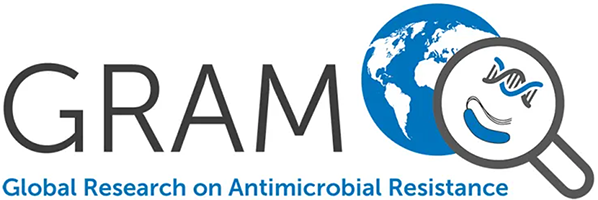Seeking to empower researchers and healthcare decision-makers to track antimicrobial resistance (AMR) in their home countries, the Global Research on Antimicrobial Resistance (GRAM) Project convened its inaugural AMR Foundation Workshop in Bangkok in November to share knowledge of drug-resistant infections (DRIs), review key skills, and explore strategies for reducing the burden of AMR.
Hosted by GRAM partners and the MORU Tropical Health Network, the two-day workshop, welcomed 22 participants from 10 countries—most of them LMICs. GRAM, a partnership between Oxford and the Institute for Health Metrics and Evaluation (IHME) supported by the UK Fleming Fund and Wellcome Trust, plans to hold a second workshop this March in Nairobi.
GRAM principals praised the Bangkok sessions for enabling them to engage more directly with researchers in the field, while drawing from GRAM’s methodologies. The team has published multiple landmark estimates of global AMR burden in recent years. This includes a longitudinal study which appeared in the Lancet in September.
‘The two-way aspect is really important’, said Prof Ben Cooper, GRAM’s PI in Oxford, who described the sessions as invaluable. ‘It’s not just telling people what the results are, but hearing from them how they look on the ground, does anything not make sense, and are there ways findings are presented that would be easier to follow’.
Organisers aimed to give attendees a comprehensive understanding of AMR—including the impact of DRIs, assessment methodologies, and analytical techniques. The workshop also sought to help participants analyse local AMR and antimicrobial use (AMU) data alongside GRAM study results, to inform local decision-making on policies and interventions to reduce AMR burden.
A further aim was to explore new surveillance initiatives, interventions and research projects aimed at reducing AMR burden.
The first day of the workshop focused on approaches and methodologies of IHME’s Global Burden of Disease study, as well as the MICROBE tool—an online database containing AMR burden data from GRAM’s results. To utilise the MICROBE tool, visit the IHME website. The second day focused on improving surveillance, and prioritizing and evaluating interventions to reduce AMR burden.
With a key emphasis on early career development, the workshop drew attendees from Cambodia, India, Indonesia, Laos, Malaysia, Pakistan, Singapore, Thailand, Vietnam, and Switzerland. This included local researchers and health decision-makers. Some have already collaborated with GRAM, or may do so in the future.
Besides Oxford, IHME, and MORU, attendees came from the World Health Organization (WHO), Universitas Indonesia, CDC Cambodia, Thailand Food and Drug Administration, National Institute of Public Health (Cambodia), Shaheed Benazir Bhutto University, Nanyang Technical University (NTU) Singapore, National University of Singapore, and national ministries of health in Cambodia, Malaysia, and Thailand.
Sessions were convened by Prof Cooper of Oxford, Prof Mohsen Naghavi of IHME, University of Washington, and Prof Direk Limmathurotsakul of Mahidol University, Thailand, with additional instruction by multiple researchers.
Prof Cooper expressed thanks for the opportunity to engage more deeply with GRAM collaborators and other researchers, saying he hoped the sessions would lead to progress in the field.
‘It would be great if they could help accelerate efforts to reduce the burden of drug-resistant infections in the region’, Prof Cooper said.


